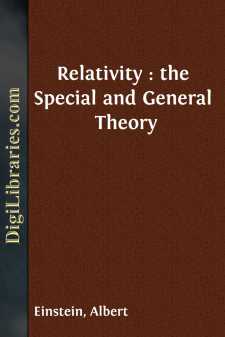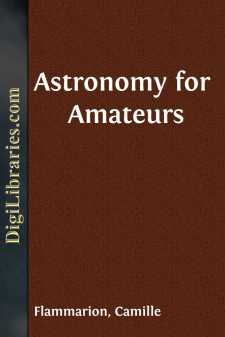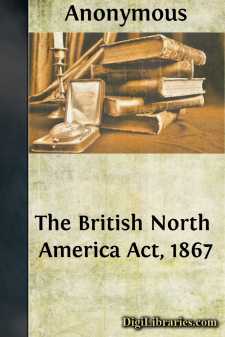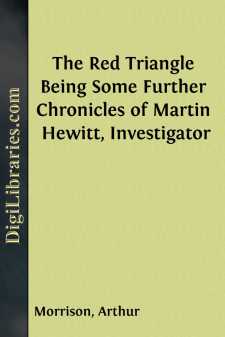Categories
- Antiques & Collectibles 13
- Architecture 36
- Art 48
- Bibles 22
- Biography & Autobiography 813
- Body, Mind & Spirit 142
- Business & Economics 28
- Children's Books 17
- Children's Fiction 14
- Computers 4
- Cooking 94
- Crafts & Hobbies 4
- Drama 346
- Education 46
- Family & Relationships 57
- Fiction 11829
- Games 19
- Gardening 17
- Health & Fitness 34
- History 1377
- House & Home 1
- Humor 147
- Juvenile Fiction 1873
- Juvenile Nonfiction 202
- Language Arts & Disciplines 88
- Law 16
- Literary Collections 686
- Literary Criticism 179
- Mathematics 13
- Medical 41
- Music 40
- Nature 179
- Non-Classifiable 1768
- Performing Arts 7
- Periodicals 1453
- Philosophy 64
- Photography 2
- Poetry 896
- Political Science 203
- Psychology 42
- Reference 154
- Religion 513
- Science 126
- Self-Help 84
- Social Science 81
- Sports & Recreation 34
- Study Aids 3
- Technology & Engineering 59
- Transportation 23
- Travel 463
- True Crime 29
Sort by:
In issuing this volume of my Mathematical Puzzles, of which some have appeared in periodicals and others are given here for the first time, I must acknowledge the encouragement that I have received from many unknown correspondents, at home and abroad, who have expressed a desire to have the problems in a collected form, with some of the solutions given at greater length than is possible in magazines...
more...
I shall read, We shall read,You will read, You will read,He will read, They will read. But when I desire to show determination on my part to do a certain thing, or when I exercise my authority over another, or express promise, command, or threat, will is used in the first person and shall in the second and third; as, I will read, We will read,You shall read, You shall read,He shall read, They shall...
more...
by:
Thomas Sherlock
THET R I A LOF THEWITNESSESOF THEResurrection of Jesus We were, not long since, some Gentlemen of the inns of court together, each to other so well known, that no man's presence was a confinement to any other, from speaking his mind on any subject that happened to arise in conversation. The meeting was without design, and the discourse, as in like cases, various. Among other things we fell upon...
more...
by:
Albert Einstein
PART I THE SPECIAL THEORY OF RELATIVITY PHYSICAL MEANING OF GEOMETRICAL PROPOSITIONS In your schooldays most of you who read this book made acquaintance with the noble building of Euclid's geometry, and you remember — perhaps with more respect than love — the magnificent structure, on the lofty staircase of which you were chased about for uncounted hours by conscientious teachers. By reason of...
more...
INTRODUCTION The Science of Astronomy is sublime and beautiful. Noble, elevating, consoling, divine, it gives us wings, and bears us through Infinitude. In these ethereal regions all is pure, luminous, and splendid. Dreams of the Ideal, even of the Inaccessible, weave their subtle spells upon us. The imagination soars aloft, and aspires to the sources of Eternal Beauty. What greater delight can be...
more...
A while ago I came across a newspaper clipping—a recipe written by a Baltimore lady—that had long lain dormant in my desk. It ran as follows: “A great many husbands are spoiled by mismanagement. Some women go about it as if their husbands were bladders, and blow them up; others keep them constantly in hot water; others let them freeze, by their carelessness and indifference. Some keep them in a...
more...
SERMONS ON BIBLICAL CHARACTERS I THE MISSING MAN—THOMAS John 20:24 "Thomas, one of the twelve, called Didymus, was not with them when Jesus came." Did you notice the name of this man who was missing? Who was it when the little company met after the crucifixion that was not there? There was a man expected who failed to come. Who was this man? When the little company gathered in the upper room...
more...
by:
Anonymous
I.—PRELIMINARY. 1. [Short Title.] This Act may be cited as The British North America Act, 1867. 2. [Application of Provisions referring to the Queen.] The Provisions of this Act referring to Her Majesty the Queen extend also to the Heirs and Successors of Her Majesty, Kings and Queens of the United Kingdom of Great Britain and Ireland. 3. [Declaration of Union] It shall be lawful for the Queen, by...
more...
by:
Arthur Morrison
I have already recorded many of the adventures of my friend Martin Hewitt, but among them there have been more of a certain few which were discovered to be related together in a very extraordinary manner; and it is to these that I am now at liberty to address myself. There may have been others—cases which gave no indication of their connection with these; some of them indeed I may have told without a...
more...
THE MIND OF THE ARTIST An able painter by his power of penetration into the mysteries of his art is usually an able critic. Alfred Stevens. The Belgian painter, not the English sculptor. Art, like love, excludes all competition, and absorbs the man. Fuseli. A good painter has two chief objects to paint, namely, man, and the intention of his soul. The first is easy, the second difficult, because he has...
more...











